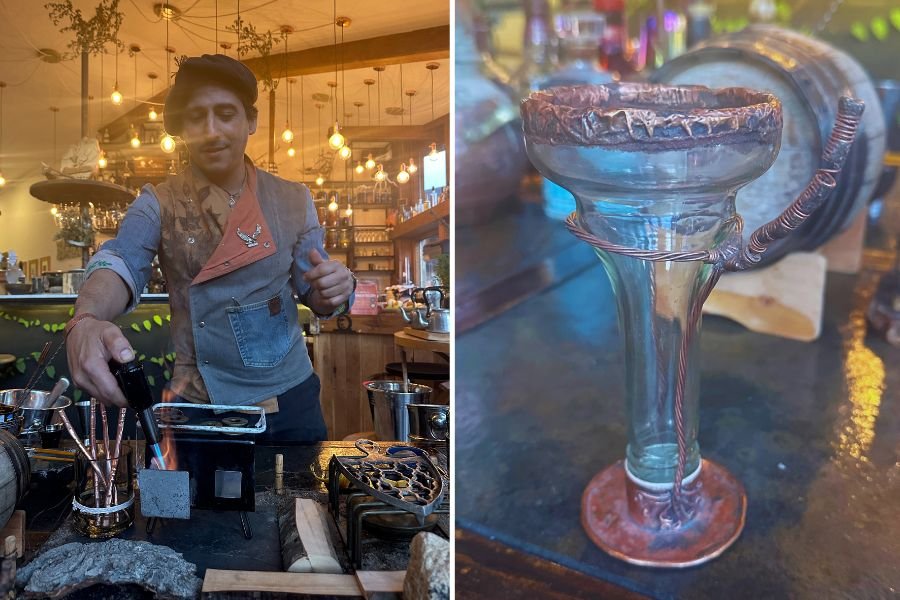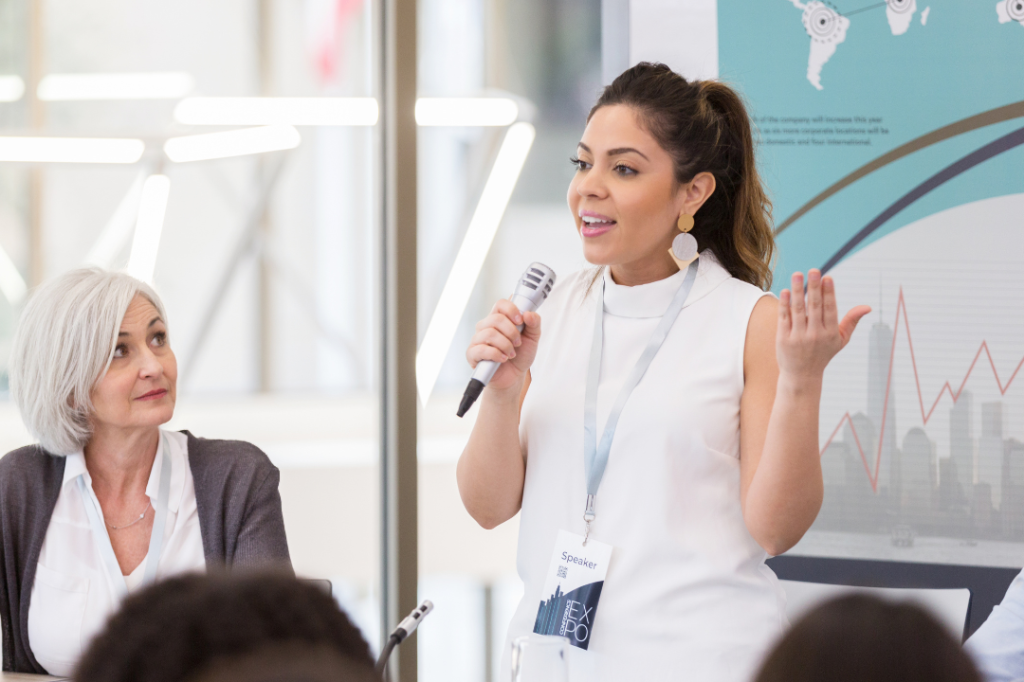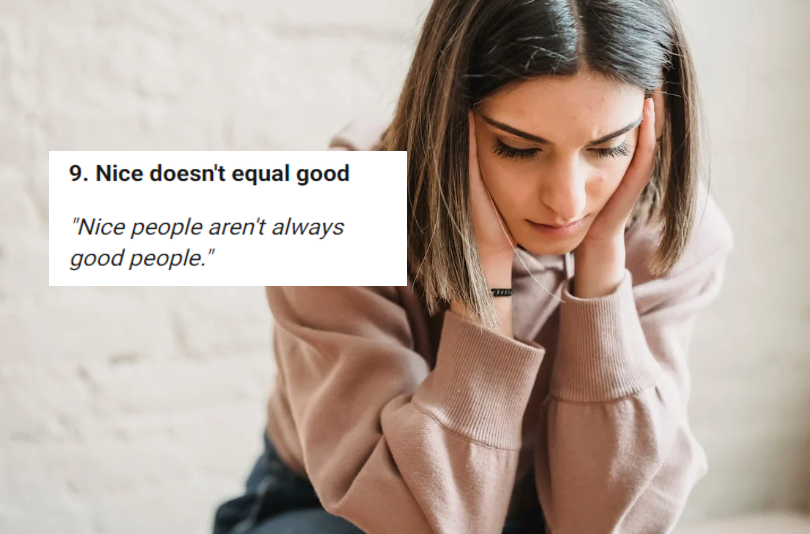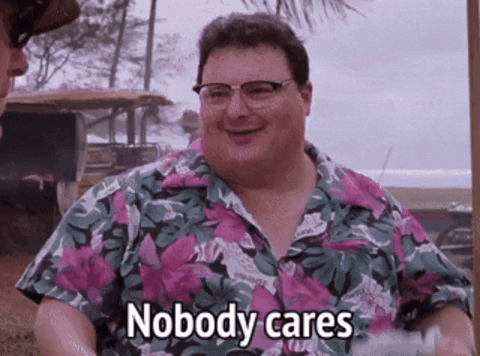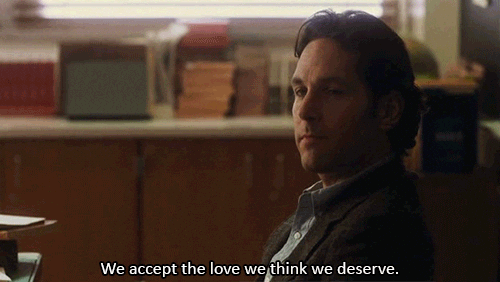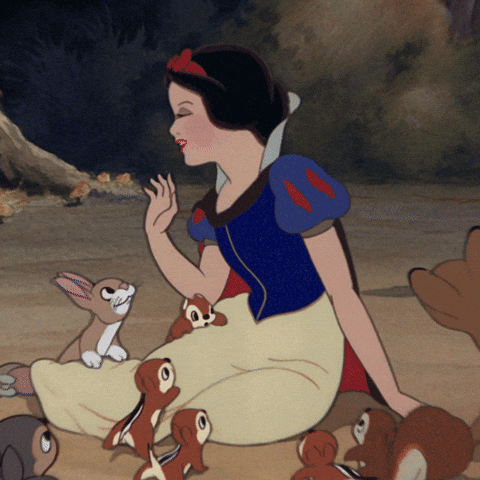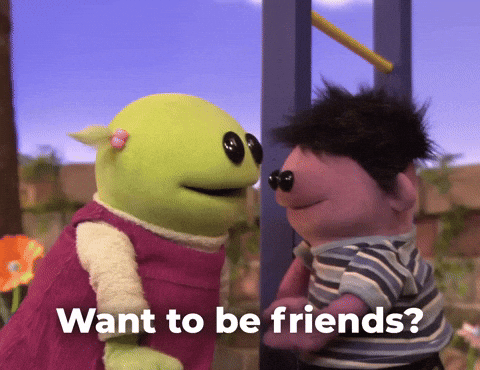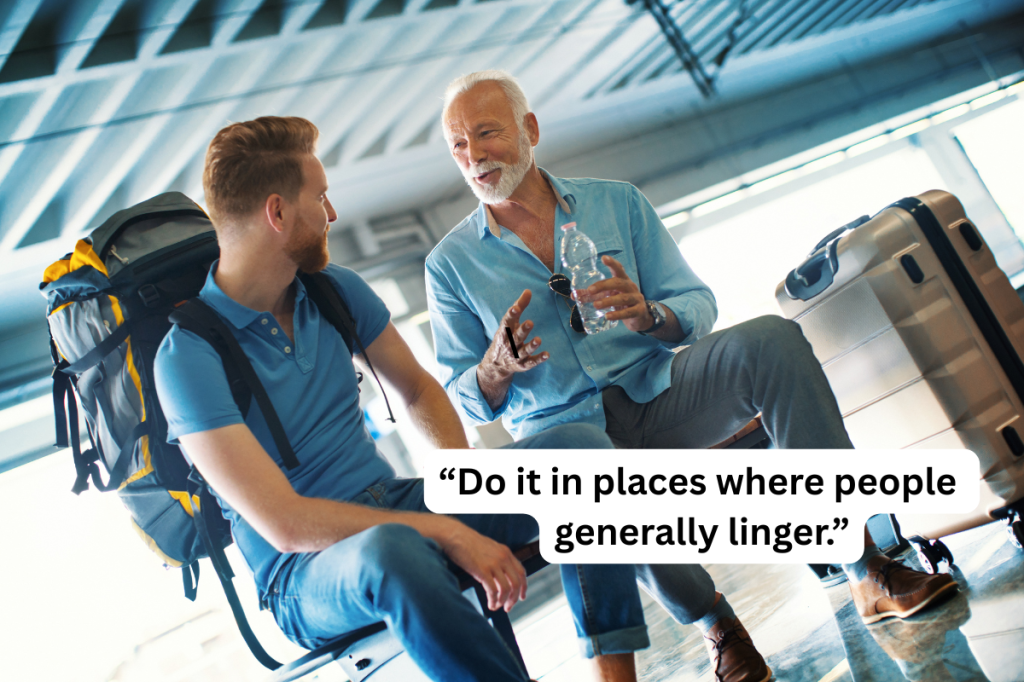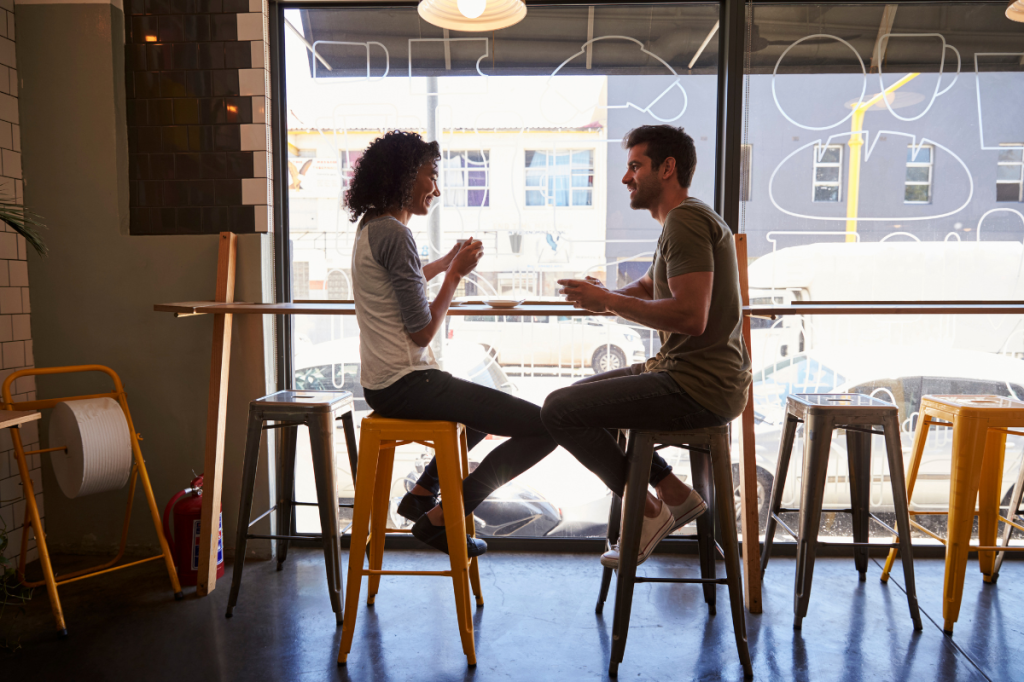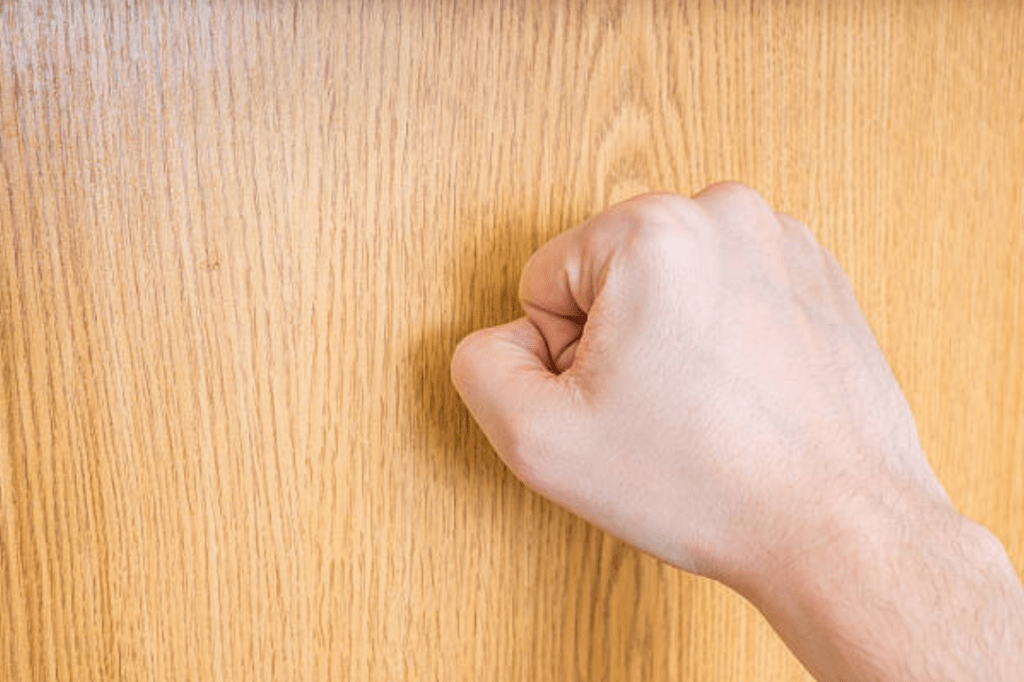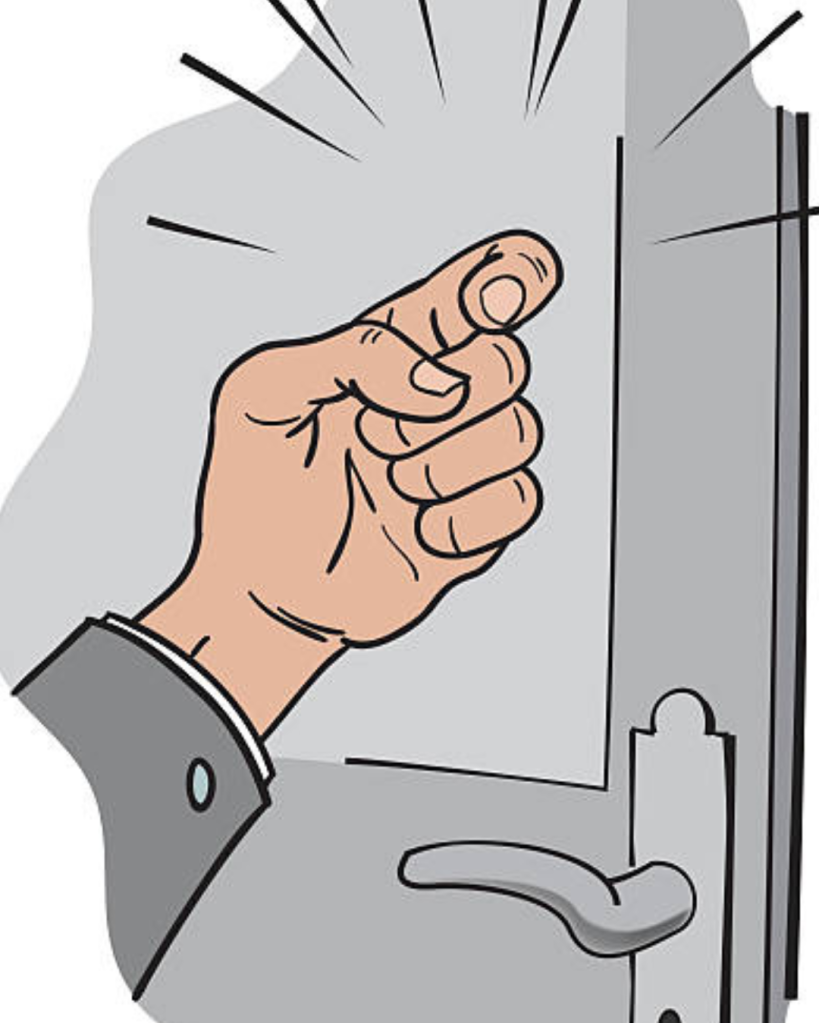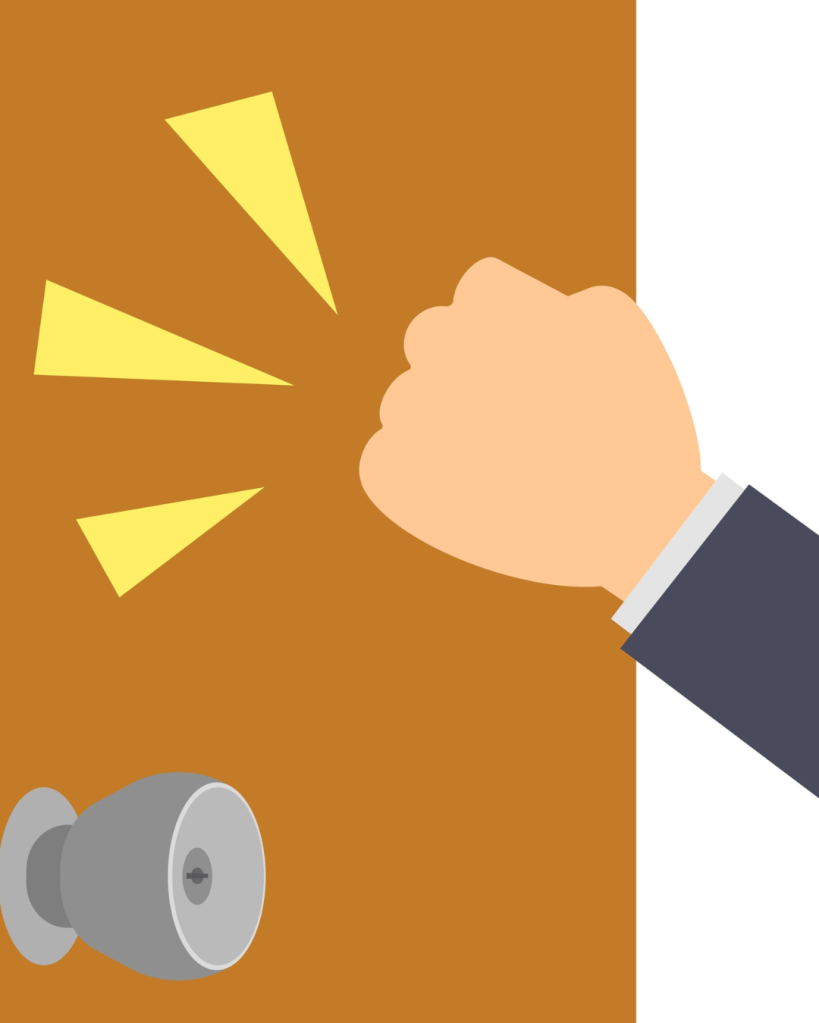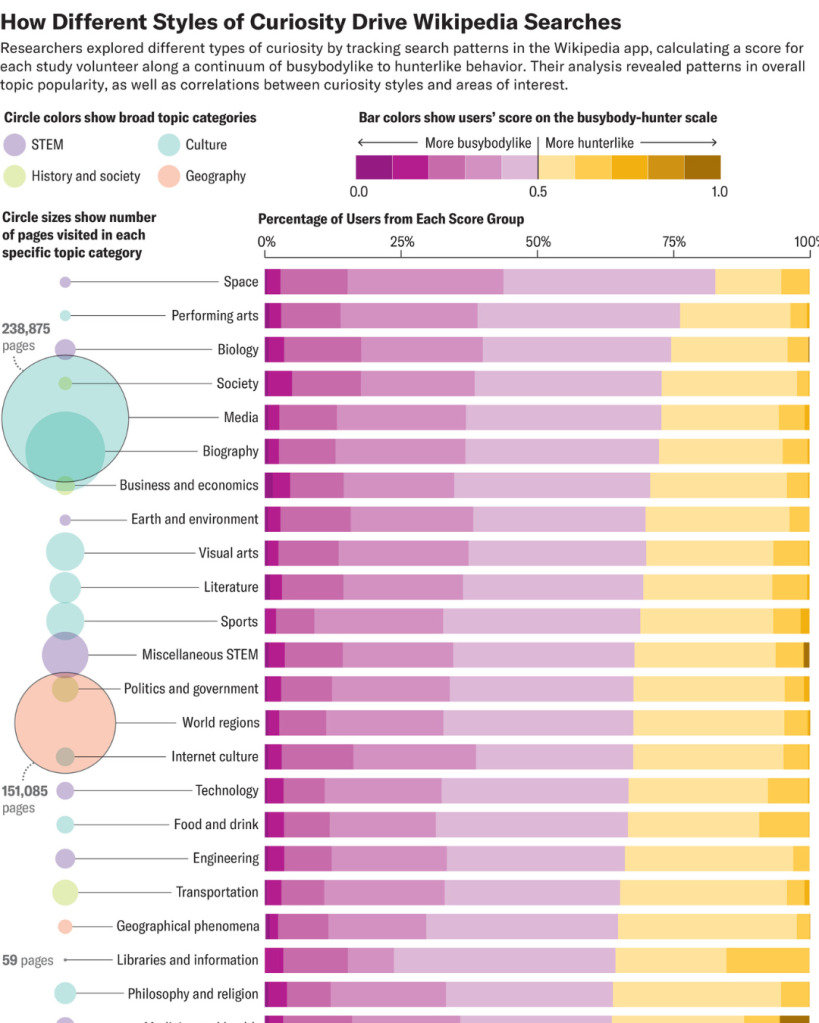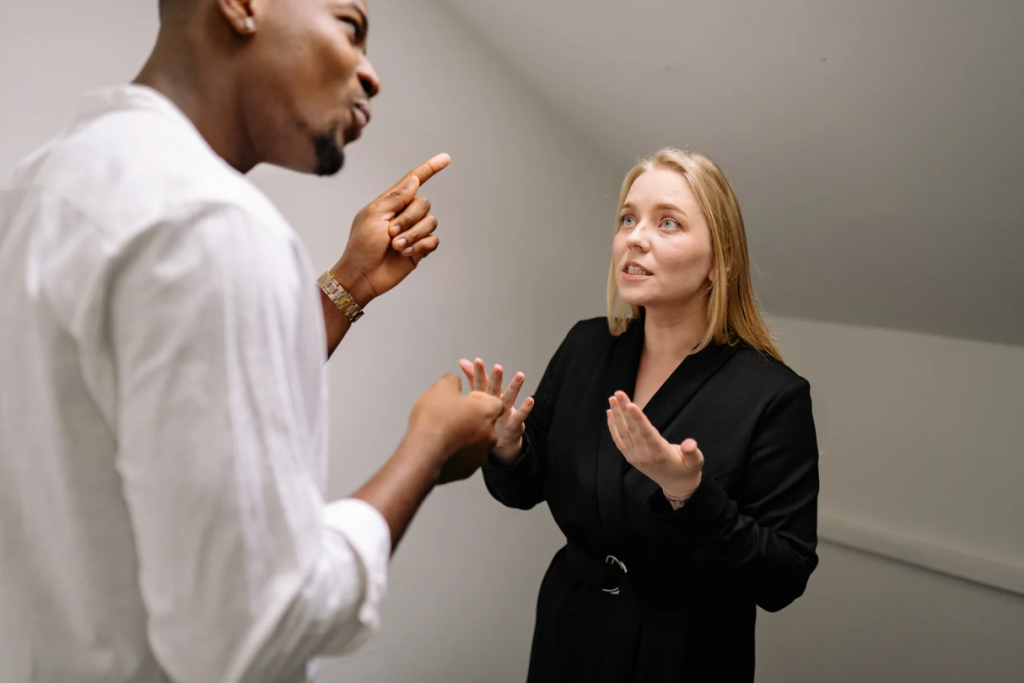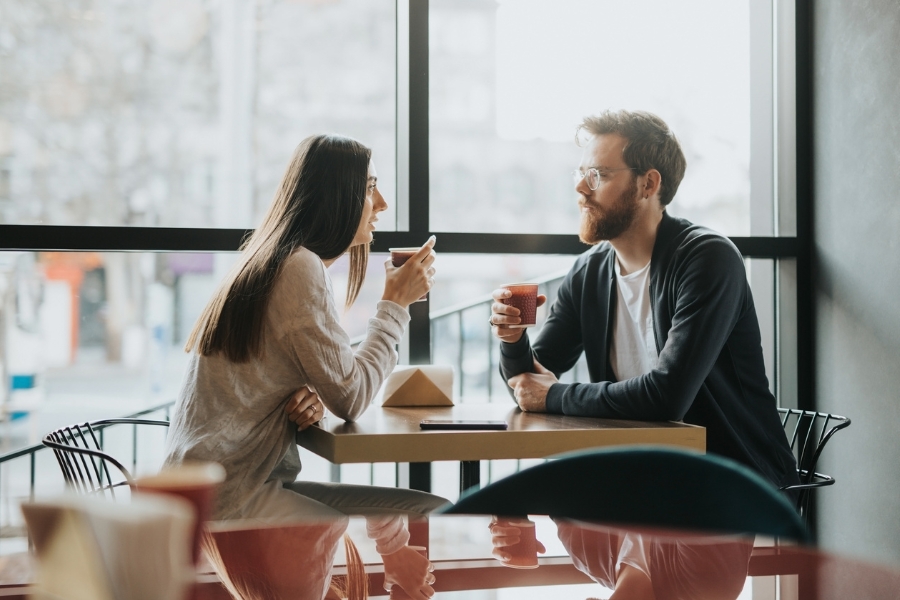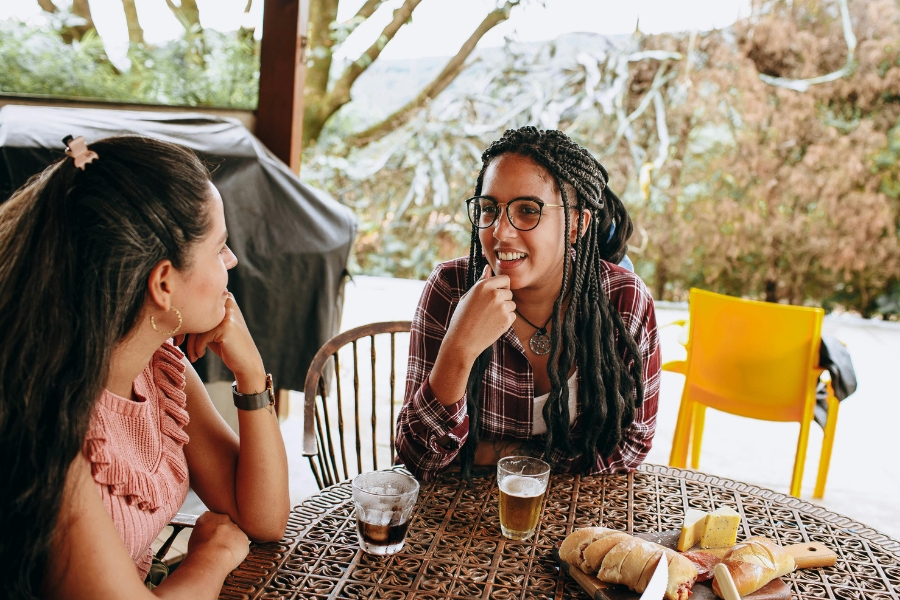When people talk about sustainability in the food and drink industry, there’s a lot of talk about plastic straws and reducing waste. But at Bar Pionero, the sustainability standard is set much, much higher. They do things I didn’t even know were possible, and they don’t do things a lot of people—those who put profit before protection of the environment—would do in the name of conservation.
And most of it comes down to the vision of elite bartender Federico Gil.
Gil and his brother founded Bar Pionero 14 years ago, after moving to Chilean Patagonia from Uruguay. The bar sits adjacent to the main lobby of the Las Torres Hotel, just inside Torres del Paine National Park, and with its wall of windows framing a towering mountain, just being in the bar is an experience. The food is good, and as someone who doesn’t drink, I was delighted by the incredible mocktail offerings. But the highlight of the bar is Gil himself.
Watching Gil speak about sustainability was mesmerizing, even with him speaking in Spanish and me only understanding a few words of what he said. For the details, I needed the English-speaking translator, but Gil’s passion for sustainability needed no translation; it was genuine and palpable. 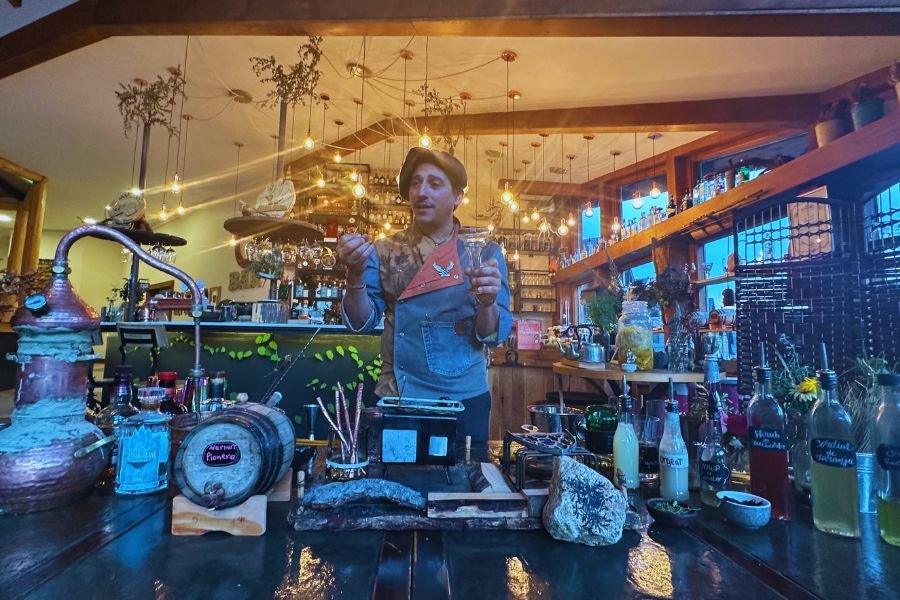
On a practical level, here are some of the zero-waste practices the bar has implemented:
– Not only do they not use plastic straws but they use signature copper straws. Chile is the world’s largest copper producer, so the metal is plentiful. It’s also naturally anti-bacterial (though they have a sanitation process they use to clean them, of course).
– They repurpose bottles and jars into drinking glasses and tools for the bartenders. Sometimes they even combine them with copper. Check out this gorgeous glass made from an upside down glass bottle top and copper.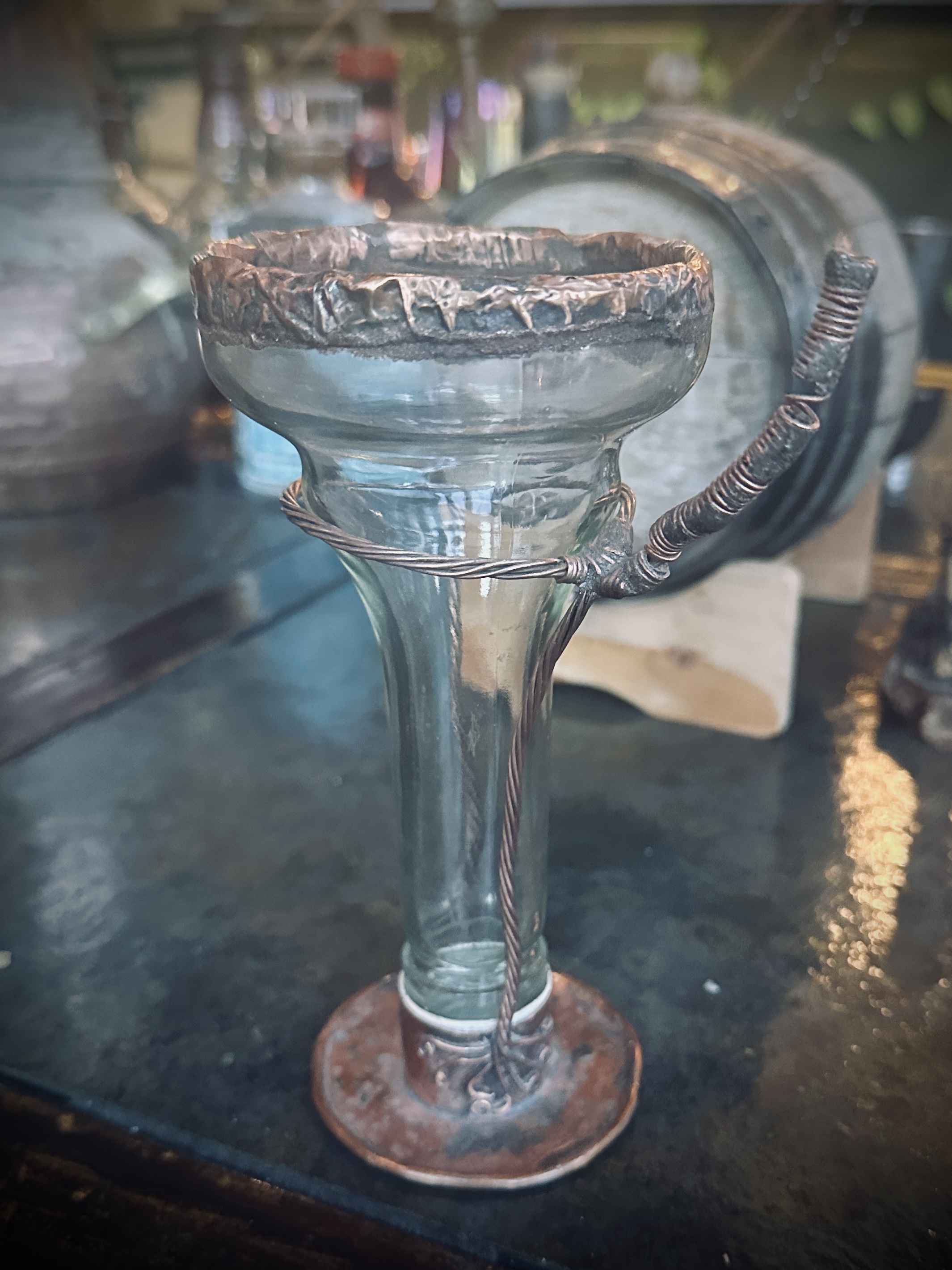
– They make their own mixes, spirits, bitters, vinegars, etc. from the plants that grow naturally in the surrounding landscape as well as from the organic garden on site.
– They also make vinegar by capturing and repurposing the dribbles of beer that come out of the tap after a draft beer is poured.
– They brew their own beer using pure glacial water and hops grown in the garden. The byproduct of the brewing process then goes back into the garden as fertilizer.
– They distill their own gin in small batches, using glacial water, 13 botanicals from the natural landscape and the clay left behind from the moving glaciers. Gil says his goal with the gin is to convey the “spirit of the ice.” Glacial gin. Who knew?
The gin is so unique, Gil could certainly make money distributing it around the world, but he refuses. Same with the beer.
“The world doesn’t need one more gin or one more beer,” he says. The most sustainable way is not to sell it outside the hotel, where it would have to be shipped and transported. “We’re not thinking about how much we can sell, but what impact we have,” he adds.
It’s literally putting their money where their mouth is, knowing they could have a lucrative product on their hands but not capitalizing on it because of the environmental impact that would have. And it’s not just a guess—Gil says the bar actually keeps track and calculates their environmental impact using various measures.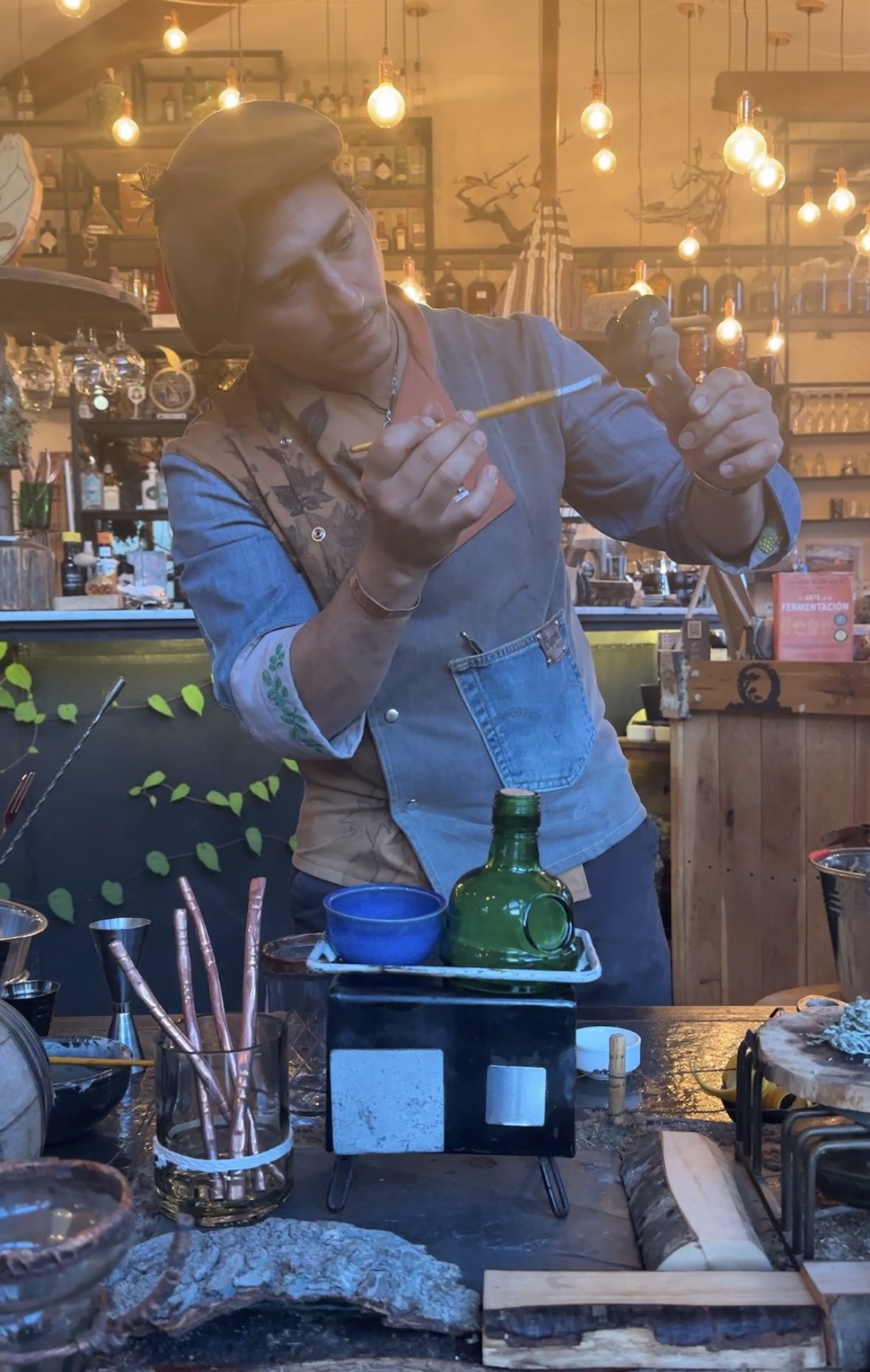
On top of all of that, watching Gil craft a cocktail is like watching an artist at work. He’s as passionate about creativity as he is about sustainability, and it shows. I watched him light herbs on fire and set a glass bottle top over the flame to capture their essence, then paint a homemade cold extraction of lemon onto a frozen stone from the park, then shake together various liquids created from park botanicals and put it all together into glass made of layers of jar and glass tops.
I’d never seen anything like it, and I’ve rarely seen anyone who walks the sustainability talk so clearly in their work. It not only gave me hope for the conservation of Torres del Paine and Patagonia (which is stunning—a place bucket lists are made for, seriously), but also made me realize how much we have to learn from one another as we strive to protect our beautiful planet.
If you’d like to see Federico in action, check out this video from my experience there:
This writer was a guest of Las Torres Patagonia. This article was not reviewed by the hotel or anyone associated with it before publication.

